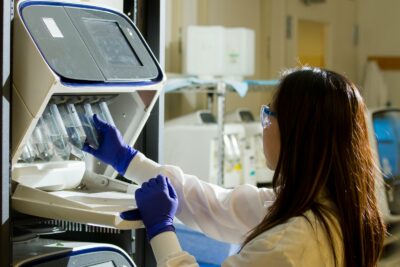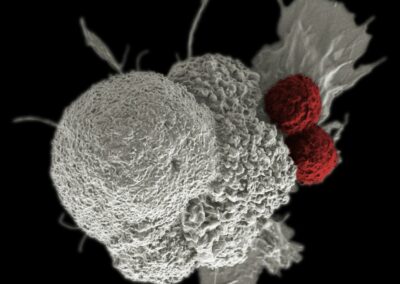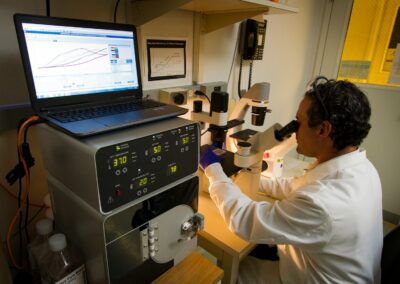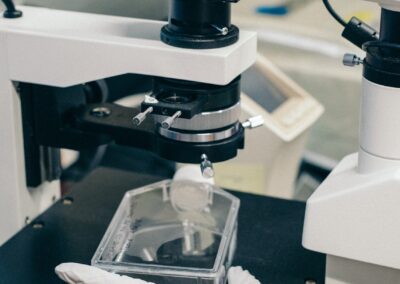Exploring Gene Mapping and Its Role in Uncovering Genetic Conditions
Revolutionizing Health with Gene Mapping
Gene mapping is revolutionizing the healthcare industry by uncovering the genetic basis of various conditions, a development that holds immense promise for regions like Saudi Arabia and the UAE. This groundbreaking technology enables scientists to pinpoint the specific genes associated with diseases, providing a roadmap for understanding the complexities of human health. In Saudi Arabia and the UAE, where there is a strong emphasis on medical advancements, gene mapping has the potential to transform healthcare delivery and disease prevention strategies.
The process of gene mapping involves identifying the locations of genes on chromosomes and determining their functions. This information is crucial for understanding how genetic variations contribute to different conditions, from common illnesses like diabetes and heart disease to rare genetic disorders. In regions like Riyadh and Dubai, where healthcare infrastructure is rapidly advancing, integrating gene mapping into medical practice can lead to earlier diagnosis and more effective treatments.
Moreover, the insights gained from gene mapping can facilitate the development of personalized medicine, an approach that tailors treatment to an individual’s genetic makeup. This shift towards precision medicine is particularly relevant in the Middle East, where genetic disorders are prevalent due to high rates of consanguinity. By leveraging gene mapping, healthcare providers in Saudi Arabia and the UAE can offer more accurate prognoses and targeted therapies, ultimately improving patient outcomes.
Impact of Gene Mapping on Disease Management
The impact of gene mapping on disease management cannot be overstated, especially in the context of Saudi Arabia and the UAE. By understanding the genetic basis of conditions, healthcare professionals can implement more effective strategies for prevention, diagnosis, and treatment. This is crucial in a region that is investing heavily in cutting-edge medical technologies and healthcare services.
One of the significant benefits of gene mapping is its ability to identify individuals at risk for certain diseases before symptoms appear. For example, genetic markers can reveal a predisposition to conditions like breast cancer or Alzheimer’s disease, allowing for proactive monitoring and preventive measures. In cities like Riyadh and Dubai, where there is a growing focus on health innovation, gene mapping can support public health initiatives aimed at reducing the incidence of genetic diseases.
Additionally, gene mapping can enhance the effectiveness of treatment plans by identifying the genetic mutations that drive a patient’s disease. This information enables healthcare providers to choose the most appropriate therapies, minimizing trial-and-error approaches and reducing healthcare costs. For instance, in the treatment of cancers, knowing the genetic mutations can guide the selection of targeted therapies that are more likely to be effective for the patient.
Furthermore, gene mapping can inform the development of new drugs and therapies. By understanding the genetic underpinnings of diseases, researchers can identify new drug targets and develop treatments that address the root cause of the condition. This is particularly relevant in the Middle East, where investment in biotechnology and pharmaceutical research is on the rise. Saudi Arabia and the UAE are well-positioned to become leaders in this field, leveraging gene mapping to drive innovation in drug development.
Integrating Gene Mapping with Emerging Technologies
The integration of gene mapping with emerging technologies such as artificial intelligence (AI) and blockchain is set to further enhance its impact on healthcare. In regions like Saudi Arabia and the UAE, where there is a strong commitment to adopting advanced technologies, this integration can drive significant improvements in health outcomes.
AI can analyze vast amounts of genetic data quickly and accurately, identifying patterns and correlations that might be missed by human researchers. This capability is essential for advancing personalized medicine, as AI can help predict how different genetic variations will affect an individual’s response to treatment. In Dubai and Riyadh, healthcare institutions are already incorporating AI into their practices, making them ideal settings for leveraging AI-driven gene mapping.
Blockchain technology, on the other hand, can ensure the security and privacy of genetic data. Given the sensitive nature of genetic information, it is crucial to have robust systems in place to protect patient data from unauthorized access. Blockchain can provide a decentralized and secure way to store and share genetic data, ensuring that patients in Saudi Arabia and the UAE can benefit from gene mapping without compromising their privacy.
The metaverse, a virtual-reality space where users can interact with a computer-generated environment and other users, also offers exciting possibilities for gene mapping. It can provide a platform for researchers and clinicians to collaborate in real-time, sharing insights and data to accelerate genetic research. In the Middle East, where there is a keen interest in digital transformation, the metaverse could become a valuable tool for advancing genetic research and healthcare innovation.
Conclusion: The Future of Gene Mapping in Saudi Arabia and the UAE
The future of gene mapping in Saudi Arabia and the UAE is bright, with the potential to transform healthcare and improve the lives of millions. As these nations continue to invest in medical advancements and cutting-edge technologies, gene mapping will play a pivotal role in their healthcare strategies. By understanding the genetic basis of conditions, healthcare providers can offer more personalized and effective treatments, reducing the burden of disease and enhancing the quality of life for their populations.
In conclusion, the integration of gene mapping with technologies like AI, blockchain, and the metaverse will further amplify its impact, driving innovation and improving health outcomes. Saudi Arabia and the UAE are poised to lead the way in this exciting field, demonstrating the power of gene mapping to revolutionize healthcare. The commitment to medical advancements and the adoption of emerging technologies will ensure that these nations remain at the forefront of genetic research and healthcare innovation.
—
#genemapping #genetics #healthcareinnovation #SaudiArabia #UAE #Riyadh #Dubai #personalizedmedicine #AI #blockchain #metaverse























